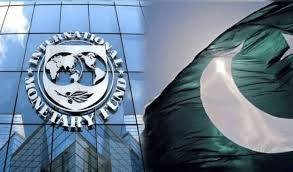IMF Urges Pakistan to Submit Circular Debt Solution Plan Promptly

The International Monetary Fund (IMF) has strongly urged Pakistan to present a comprehensive Circular Debt Solution Plan as part of its ongoing economic reform commitments. This push comes amid rising concerns about the sustainability of Pakistan’s energy sector, where circular debt has become a recurring and deep-rooted challenge affecting power supply, investor confidence, and national growth.
According to recent reports, the IMF has asked Pakistani authorities to speed up the process and share a clear roadmap detailing how the government intends to eliminate the growing circular debt in the power sector. The lender emphasized that without immediate structural reforms, the circular debt could cripple the country’s economy and reverse the progress made under current bailout agreements.
What is Circular Debt and Why Is It a Problem?
Circular debt refers to the unpaid bills across the energy supply chain, starting from power distribution companies (DISCOs) to generation companies and fuel suppliers. When power consumers don’t pay their full bills or the government delays subsidies, this causes a shortfall. That shortfall turns into mounting debt between power producers and distributors.
As of July 2025, Pakistan’s circular debt is estimated to have crossed Rs 2.6 trillion, a number that threatens the entire energy ecosystem. Independent Power Producers (IPPs) complain about delayed payments, which affects their ability to operate efficiently. In turn, the government faces pressure to release subsidies and keep electricity prices controlled, especially for low-income households.
IMF’s Concerns and Conditions
The IMF has made it clear that any future financial support will depend on how seriously Pakistan takes structural reforms, especially in the energy and power sectors. A key part of these reforms is the Circular Debt Solution Plan, which should include realistic timelines, cost saving strategies, and transparent accountability mechanisms.
Sources suggest that IMF officials want the plan to include:
-
Gradual removal of energy subsidies
-
Full cost recovery through tariff reforms
-
Improved efficiency of DISCOs
-
Strict enforcement against power theft
-
Use of digital tools for meter reading and billing
-
Reduction in technical and line losses
The IMF believes that only a comprehensive and strictly implemented Circular Debt Solution Plan can help Pakistan stabilize its power sector and avoid further financial slippage.
Government’s Response and Strategy
In response to IMF’s demands, the Ministry of Energy and Ministry of Finance have begun working together to draft a revised Circular Debt Solution Plan. Officials claim that the plan will be finalized soon and shared with the IMF as part of the conditions for the next tranche of the $3 billion bailout agreement.
The plan is expected to focus on short, medium, and long term reforms. In the short term, the government plans to raise electricity tariffs for high income users and cut subsidies that are currently draining public finances. In the medium term, efforts will be made to improve the efficiency of power distribution companies. Over the long term, the government is looking at renewable energy and privatization of DISCOs to reduce state burden.
Expert Opinions on the Circular Debt Crisis
Energy experts have long warned that unless Pakistan addresses the root causes of circular debt, the crisis will continue to grow regardless of financial aid from global institutions.
Dr. Hafeez Ahmed, a senior energy economist, said, “The circular debt issue is not just a financial problem, it reflects decades of mismanagement, political interference, and inefficiency. Any Circular Debt Solution Plan must also tackle governance issues, or it won’t work.”
He added that digitalization, merit based hiring in energy companies, and timely bill collections should be key parts of the reform strategy.
Impact on Common People and Businesses
The circular debt issue does not only affect government finances and global lenders. It has a direct impact on millions of citizens and businesses across Pakistan. Frequent power outages, inconsistent billing, and rising electricity prices are all symptoms of an energy sector under stress.
Industries often complain about high power tariffs, which affect their global competitiveness. Households, especially those in rural and lower income urban areas, suffer from unreliable electricity supply, forcing them to rely on costly alternatives like generators or solar panels.
Without an effective Circular Debt Solution Plan, experts warn that the entire energy system could face collapse, leading to long term damage to the economy and national development goals.
Global Confidence and Investor Sentiment
International investors and energy companies closely watch how Pakistan handles its energy reforms. A successful implementation of the Circular Debt Solution Plan will not only fulfill IMF requirements but also boost investor confidence.
Foreign companies looking to invest in Pakistan’s renewable energy sector or set up new power plants want assurance that the financial system is reliable and that they will get timely payments. By cleaning up its energy books and creating a sustainable model, Pakistan can attract long-term investments that reduce dependence on foreign loans.
Conclusion
The IMF’s latest call to action puts Pakistan at a critical juncture. With rising circular debt threatening the energy sector and the broader economy, the urgency to develop and implement a strong Circular Debt Solution Plan cannot be overstated.
As the government prepares to finalize and submit the plan, all eyes are on how effectively it addresses the challenges and commits to real reform. If done right, it could be a turning point for Pakistan’s energy future bringing relief to citizens, stability to businesses, and confidence to global partners.
You may have miss this
PMD Rain Forecast and Flood Warning Issued Across Pakistan




